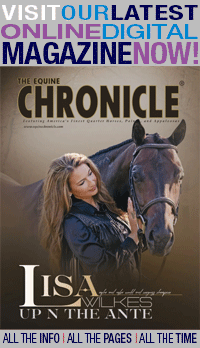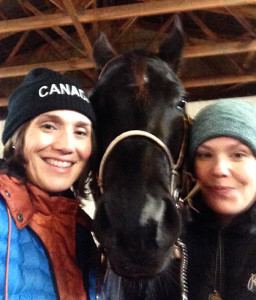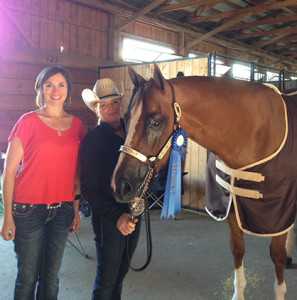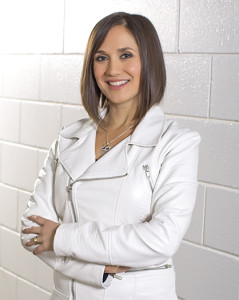Mental Performance Training For Equestrians: Two AQHA Riders Reflect on Their Experiences
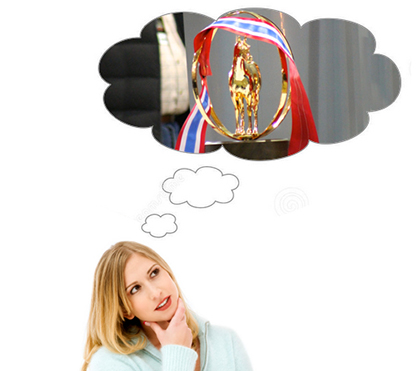 Mental Performance Training – Making a Positive Difference in the Success and Enjoyment of Horse Showing
Mental Performance Training – Making a Positive Difference in the Success and Enjoyment of Horse Showing
By: Tara Costello, M.A., C.S.P.A.
Rider Profile #1: AQHA Novice Amateur Betty MacDonald with her gelding Hot Shine
(2015- 2nd place finish in MQHA Novice Amateur Western Pleasure class and consistent Top 10 rankings with limited showing, in addition to amateur and open Halter points.)
What was your motivation for getting support in the mental performance component of showing? “I was struggling with my nerves, and it was affecting my ability to compete in the ring and to ride my horse well. It was a ‘mind thing,’ and I couldn’t control my thoughts.”
How did the mental performance program help you in this area? “It gave me a toolbox of skills, like breathing exercises, to help keep my thoughts on track and to control my anxiety. The one that really helped me was learning how to relax my body from head to toe. I didn’t realize how much my legs were stiffening up; my muscles were so tight. I’d noticed that my stomach would get upset, but I didn’t notice the rest of my body. The program made me aware of what I was doing physically, which was creating my horse’s anxiety. He could feel all that, even though I wasn’t realizing it. It wasn’t just my horse acting up; it was more that he was feeding off me and my energy. I gained an awareness I didn’t have before.”
What are you still carrying with you from the program? “Definitely before going in a class, I try to shake out the nervous tension in my body. I try to leave any negative thoughts I have in the ‘worry box.’ I try to use that a lot. Something I do now is I print off positive sayings, like ‘be a warrior, not a worrier.’ It helps me change any negative thoughts into positive ones. I keep sayings around and post them in my horse trailer to help me keep positive and not drift into negative thinking. They help keep me motivated and determined, so if I have a bad ride, I don’t allow myself to fall into thinking like, “Oh great, this is going to be crappy,” but instead stay in the mindset, “What do I need to do to make it happen?” It’s about not letting a negative train of thought affect my whole show because I got discouraged after one bad ride.”
Was it helpful for you to have some individual sessions along with the program? “Individual sessions allow you to share more personal feelings and thoughts that you might not be comfortable sharing in a group setting. It’s easier to talk about more of the life perspectives, things that might be holding you back or things that could be creating drama in your life.”
If someone was considering investing time and money into mental performance development and this side of the game, what advice would you give them? “I would encourage them to do it. Growing up, I didn’t compete in sports; I always rode horses, but the ‘competitive edge’ is where I’m lacking. When you want to take your sport to the next level, there are a lot of factors, and I didn’t really know how to mentally prepare myself for competitions. When I was a kid, I just ‘winged it.’ I just went in and showed. But over the years, my confidence level became an issue, and I had no idea how to deal with it or how to change my thought process. It really helped me understand how I was affecting myself. I would definitely recommend it, because a lot of people who’re new to riding horses might not have a competitive background or have learned the mental skills. The mental skills toolbox concepts are very effective.
In a competitive sport, you need some sort of mental training. My son is a goaltender, and he gets coaching in this area, so why wouldn’t horse competitors need those tools as well? Horses require you to lead them, so if you’re not leading well, there’s a problem. I think with pressures in the show ring—how competitive it is, how perfect patterns and rail classes have to be—that mental training and awareness will help coaches, students, and horses stay on track and have a more positive, focused experience with showing. I fully recommend this kind of training and support. I use it in other areas of my life as well.”
Where are you today with your mental game development? Are there other areas of your mental game you’re still working on? “My problem is that when something happens, when I’m in the show ring, I still get panicky. When I make a mistake, I start to focus it, instead of letting it go. For me, now, it’s just about letting go of that and riding through it. That’s where I need to work on things.”
Achievement Goals for 2016:
“Qualify for the Novice World in Western Pleasure and start training for pattern classes to be an all-around competitor. I will use the Ahead Sport Mind Training app to keep me on track mentally with a busy show season ahead.”
Rider Profile #2: AQHA Novice Amateur Roxanne Carter-Thompson with Too Sleepy to Invite (Top 5 in the nation for Level 1 Halter 2014, Qualified for the Amateur World in 2014 and 2015, Finalist in HUS and Top 10 in Halter at the 2015 Novice Championships)
What was your motivation for getting support in the mental performance component of showing? “I recognized that I was holding a lot of tension in my body before showing. I was putting focus into my physical performance, but I recognized that I wasn’t putting the same effort into my mental performance. I felt this was an area that could use some improvement. I was looking for strategies that I could incorporate into my preparation routine.”
How did the program help you improve your mental performance? “One thing that really stands out for me was the relaxation exercises. I really noticed a difference going into my Showmanship patterns. Once I was relaxed, I noticed more flow in my patterns. I also changed the way I mentally prepared for classes. It was a defining moment for me during one phone consultations. My thought process went from being results-focused towards a performance-focus. Focusing on certain elements of my pattern and having a solid game plan was an effective mental shift. I still want results, but breaking it down is a lot less overwhelming and leads to a much more effective focus. Another thing that I took from the program was how to keep things framed in the positive, telling myself ‘what I want to do’ and not ‘what I don’t want to do.’ I use that all the time, giving myself positive messages for the goals I want to achieve in a particular show.”
Was it helpful for you to have individual sessions along with group program? “Most definitely! Having one-on-one conversations helped me a lot. Individual questions made me think about my goals and what I wanted to accomplish. Also, when I’m on the road competing in a horse show, she was able to provide specific mental performance support and reassurance that was really helpful.”
If someone was considering investing in mental performance training what advice would you give them? “It’s an interesting question, because we spend thousands of dollars on our outfits and thousands of dollars on our horses and training. However, when it’s time to go in the pen, it’s my mind, my body, and my horse. I think it’s important that we invest in our mental game development as well.”
Where are you today with your mental game development? “I think the one area I’m constantly working on is effectively communicating my expectations with my trainer/coach, evaluating what’s attainable, and coming up with a game plan to achieve those goals. Another thing I took from the program, and continue to work on, is keeping focused on things that I can control or impact. It’s a lot less stressful letting go of the things that I cannot control. That has helped me tremendously, and I felt a lot less stress.”
Achievement Goals for 2016:
“I have been competing extensively over the past five years with a trip to Novice World, multiple trips to Congress, Region 6, and many others. This year, my plan is to cut back and focus on competing regionally at MQHA events; but we’ll see, things could change.”
For more information on mental performance support visit http://www.aheadinthegame.ca/teleseminar/
Tara Costello, M.A., C.S.P.A. has supported amateur and professional athletes to achieving regional, national and international success. She has worked with National and World Curling Champions, nationally ranked tennis athletes, NHL/ AHL professional hockey players, elite golfers, and elite equestrian plus has helped many others in their personal bests. Tara was the Mental Trainer for Special Olympics Canada for the 2013 and 2015 World Games.
